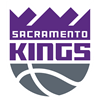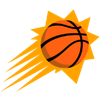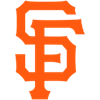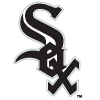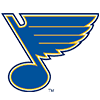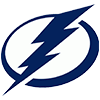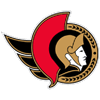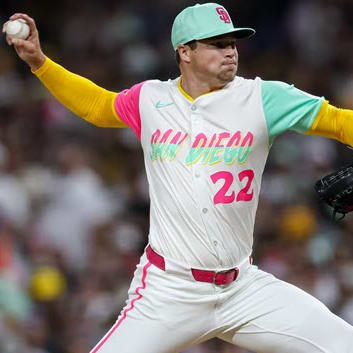All ADP references are from the 33 Draft Champions drafts which occurred over the past 30 days
Atlanta
Austin Riley drives in 140 or more runs (current ADP 20; min 16, max 24)
It is rather tough to come up with a prediction for an offense that is as loaded as this one. Five Atlanta players are going in the first two rounds of many drafts and Orlando Arcia is the only regular not being drafted inside the top 250. There simply isn't much wiggle room for ADP predictions, so I've decided to go with one that has been accomplished by only two players since the Mitchell Report came out in late 2007. Ryan Howard drove in 146 runs in 2008, while both he and Prince Fielder drove in 141 runners in 2009. That's the end of the list. Matt Olson missed joining the group by one RBI last season in the first serious challenge to the 140 RBI plateau since Chris Davis (remember him?) drove in 138 runners in 2013.
The Atlanta offense led all of baseball in 2023 by plating 17 percent of their baserunners; the league's overall figure was 14.5 percent. Riley drove in 66 of the 443 baserunners that were on base when he came to the plate last year, which computes to a 14.9 percent mark. One reason that came to be was that Riley hit .199 with runners in scoring position last season, the third consecutive year in which his performance with runners in
All ADP references are from the 33 Draft Champions drafts which occurred over the past 30 days
Atlanta
Austin Riley drives in 140 or more runs (current ADP 20; min 16, max 24)
It is rather tough to come up with a prediction for an offense that is as loaded as this one. Five Atlanta players are going in the first two rounds of many drafts and Orlando Arcia is the only regular not being drafted inside the top 250. There simply isn't much wiggle room for ADP predictions, so I've decided to go with one that has been accomplished by only two players since the Mitchell Report came out in late 2007. Ryan Howard drove in 146 runs in 2008, while both he and Prince Fielder drove in 141 runners in 2009. That's the end of the list. Matt Olson missed joining the group by one RBI last season in the first serious challenge to the 140 RBI plateau since Chris Davis (remember him?) drove in 138 runners in 2013.
The Atlanta offense led all of baseball in 2023 by plating 17 percent of their baserunners; the league's overall figure was 14.5 percent. Riley drove in 66 of the 443 baserunners that were on base when he came to the plate last year, which computes to a 14.9 percent mark. One reason that came to be was that Riley hit .199 with runners in scoring position last season, the third consecutive year in which his performance with runners in scoring position has declined:
Season | PA | BB% | K% | AVG | OBP | SLG | OPS | BABIP |
|---|---|---|---|---|---|---|---|---|
2019 | 82 | 9.8% | 30.5% | 0.254 | 0.329 | 0.592 | 0.921 | 0.286 |
2020 | 58 | 8.6% | 27.6% | 0.250 | 0.310 | 0.481 | 0.791 | 0.294 |
2021 | 189 | 9.5% | 22.8% | 0.313 | 0.376 | 0.488 | 0.863 | 0.370 |
2022 | 174 | 8.0% | 24.1% | 0.247 | 0.328 | 0.487 | 0.814 | 0.279 |
2023 | 200 | 13.5% | 23.0% | 0.199 | 0.320 | 0.423 | 0.743 | 0.189 |
There is very little stickiness associated with RISP year over year, so a three-year decline is as meaningful as a three-year improvement. All it means is that he has a wide range of outcomes, with his breakout season of 2021 standing out from the pack. Riley drove in a career-high 107 runs that season despite Ronald Acuna Jr. missing two-thirds of the season and with Riley only hitting in the cleanup spot in 98 of his 160 games that season. Atlanta ended up employing 10 different hitters in the first three spots of their lineup that season while Riley hit anywhere from fourth to seventh.
Riley hit third in 2023 in 150 contests, with Acuna hitting leadoff and Matt Olson and Ozzie Albies splitting time in the second spot of the lineup. 2024 should once again have Riley hitting third behind Acuna but with a heavier volume of Albies or even Michael Harris II in the second spot of the lineup and Olson behind him. There is arguably not a better insulated hitter in baseball than Riley for this season with the talent both in front of and behind him in the lineup. We can set aside the numbers from 2021 and look at what could have been in 2023 if Riley just repeated his batting average with runners in scoring position from 2022. Seven more groundballs with eyes would have given him at least seven more RBIs if not more. After all, he hit .261 with anyone on base in both 2022 and 2023, but BABIP just was not his friend last season.
10 of his 37 homers came with runners in scoring position, but he did that 15 times in that 2021 and 14 times in 2022. Some positive BABIP regression and more homers in these situations, along with the ridiculous talent in front of Riley, certainly make this possible given he will likely drive himself in at least 40 times this season.
Spencer Strider is not a top-20 pitcher (ADP 7; min 3, max 13)
This one is likely going to blow up in my face and I will likely receive a lot of feedback on this particular prediction, but hear me out. I first mentioned this in my workload hangover effect piece in early December, but the increase in both innings worked and pitches thrown for Strider last season was immense:
I can absolutely see myself fading the entirety of the 2023 leaderboards, especially given my gut feeling on Strider with his 48.7 percent workload increase year over year and the 41.2 percent increase in his pitch count.
Strider threw 134 innings for Atlanta in 2022 when combining his regular and postseason work but increased that to 199.1 innings last season. He threw 2,329 pitches in 2022 and ramped that up to 3,290 last season. He threw the fifth-most pitches when combining the regular and postseason work and threw the 13th-most pitches in the regular season while finishing 18th in regular-season innings pitched. Simply put, we're heading into unknown territory regarding how Strider's body handles the increased workload.
I can already hear some of you telling me, "But Jason, Strider went from 96.1 innings in 2021 to 131.2 innings in 2022." That jump represents a 36.7 percent increase year over year, nearly 25 percent less of an increase than what he just did this past season. I know Strider's legs strain against the fabric of his pants and am well aware of how he re-worked his delivery after tearing his UCL in 2019 while at Clemson. That still doesn't sway me from fading Strider in drafts this season because I'm not comfortable with the unknown of how his body will respond to such a surge in workload. Sandy Alcantara handled it well in 2021, throwing over 200 innings coming off the abbreviated 2020 season, but he had also nearly hit 200 innings in 2019 and was certainly getting his work in during the shutdown before games ramped up.
I am not predicting injury, but take a look at some recent examples of 24-year old pitchers who worked at least 180 innings while incurring a sizable workload jump and see what happened in their next season:
- Triston McKenzie from 2022 to 2023
- Alek Manoah from 2022 to 2023
- Julio Urias from 2021 to 2022
I provided you with three example; two extreme body types on each end and a best case scenario for the 2024 fortunes for Strider. Urias did exceedingly well in his follow-up campaign, but McKenzie and particularly Manoah, who was universally loved (but not by me) in drafts this time last season, suffered in their follow-up efforts.
Simply put, this isn't the pitcher I would be taking as the top overall pitcher and isn't one you will find on any of my rosters even if I were to exercise a first-round pick on a pitcher.
Miami Marlins
Jon Berti is a top-300 player, again (current ADP 431; min 354, max 477)
The one guy many thought would flourish under the new stolen base rules did the exact opposite. Berti improved his batting average by 54 points and improved his on base percentage by 20 points compared to his 2022 numbers, yet he attempted 24 fewer stolen bases than he had the previous season. Berti even had a stretch of the season from May 17th to July 7th where he had just one stolen base as many fantasy managers watched the foundation of their stolen base strategy fail to execute his best skill.
Miami used Berti at four different positions last season, primarily at third base, but the 2022 breakout player could not find a true home. He lost his spot at second base to Luis Arraez, his spot at third base to Jean Segura and Jake Burger, and his time at shortstop to Joey Wendle. The good news for a Berti bounceback is Wendle and Segura are gone and there have even been trade rumors surrounding Arraez. Even if an Arraez deal doesn't materialize, Berti should have a clear path to the majority of the playing time at shortstop because Vidal Brujan shouldn't leapfrog him as Wendle did last season.
Berti, even at age 34, maintains a 95th percentile sprint speed and has demonstrated enough plate discipline over the years where he could hit in the second spot of the lineup should Josh Bell fall into another one of his slumps. Berti's strikeout rate has improved each of the past four seasons while his walk rate has declined, as he efforts to use his speed to reach base, as seen in the 26 infield hits he had last season. This prediction can only come true with Berti putting his running shoes back on, which could happen as the club looks to replace the offense lost with the departure of the aforementioned hitters along with the huge loss of Jorge Soler's bat. Skip Schumaker will have to look for other ways to create offense without the threat of Soler.
As long as Berti is healthy, there is no reason why someone with his speed as well as his career 82 percent stolen base success rate should not be on the move early and often in 2024. His current market price is perfect for a draft-and-follow with a reserve pick to see whether Berti's perpetual green light is back on for 2024.
Edward Cabrera is a top-75 pitcher (current ADP 295; min 227, max 327)
Cabrera is the 116th pitcher off the board, just behind Griffin Canning, Kutter Crawford and Michael Wacha and just in front of MacKenzie Gore, Louie Varland and Lance Lynn. Cabrera is also the fourth Miami starting pitcher, going after Eury Perez (78), Jesus Luzardo (80) and Braxton Garrett (182). Cabrera's spot in the rotation is all but assured given that he's out of minor-league options, so he would be a starter in Miami or anywhere else he could potentially be dealt.
We often hear about pitchers being one skill away from success, and it is rather easy to see what that skill is for Cabrera when looking at his percentage rankings:
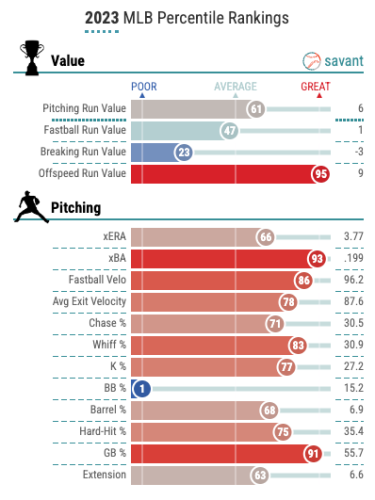
The walks are admittedly scary, but I also see opportunity because he's finding ways to succeed despite his inability to avoid free passes. He still managed to strike out 27.2 percent of the batters he faced last season while holding batters to a .214 average and has kept opposing batters to a .206 batting average over the course of his 197.2 innings of major-league work spanning three seasons. After all, we're talking about a pitcher who has a whiff rate of at least 30 percent on three of his five offerings, including his primary offering, his changeup.
The changeup is unique because it relies more on fade than drop given that its average velocity of 92.9 mph doesn't offer it much of a chance to drop on its way to the plate. The problem for Cabrera has been injury issues over the years, ranging from bicep tendonitis to an ankle issue and most recently a shoulder impingement which disrupted his 2023 season. We see a guy with his stuff with fewer than 200 innings of work at the big-league level yet see an above-average Stuff+ grade (102) and all that red in the profile and cannot help but wonder what some consistent work uninterrupted by injury would allow him to do.
This truly has the feel of a breakout should Cabrera be able to lower his walk rate to somewhere around 10 percent given how tough he is to hit and elevate. His walk rate was more under control in Triple-A, where he pitched to a 3.23 ERA and 1.23 WHIP while striking out 117 in 86.1 innings over the past three seasons. 2022 is also not a distant memory and a reminder of what is possible when things are going well for him. Simply put, his current market price is underselling his upside.
New York Mets
Mark Vientos hits 25 homers (current ADP 514; min 423, max 612)
This prediction needs to be qualified with the fact Vientos is UT-Only in standard drafts after appearing in 37 games as a designated hitter last year and 19 games at first base. Vientos's draft price would be higher with a position, but the lack of one is pushing him into 34th round of Draft Champion drafts.
Vientos will enter camp as part of the competition for the third base job, but he could also fall back to the DH position as well. The 24-year old prospect has hit for power throughout his minor-league career, especially over the past three seasons with slugging percentages of .581, .519 and .612 while spending time in Double-A and Triple-A. He showed improvement with his Triple-A strikeout rate last season, reducing it by seven full percentage points from what he did in Syracuse in 2022, but none of that mattered when he was at the big-league level. He was simply overmatched by more experienced pitchers who got him chasing non-fastballs out of the zone early and often.
However, when Vientos does square up a baseball, he can hit it very hard, as he had near-elite numbers in both average exit velocity as well as hard-hit rate:
Vientos hit 25 homers between Triple-A and the big league last season, but 16 of those came in Syracuse where he was 43% better than the league average offensively compared to 31% below it at the major league level. Vientos will need to hit to stay in the lineup given he doesn't offer much in terms of defensive value, but he has the potential to provide some very late value in the power department.
Sean Manaea is a top-100 pitcher (current ADP 358; min 303, max 444)
He is currently the 142nd pitcher off the board, behind Trevor Rogers and in front of the law firm of Sawyer Gipson-Long. I guess I just cannot quit on Manaea. Last season, he was my choice for the Giants with the newfound velocity he showed in camp and the shift to San Francisco helping his cause. The success was slow to come for him as he got into late July with a 3-3 record along with a 5.86 ERA and 1.41 WHIP over 66 innings of work despite 80 strikeouts in that sample size. The club switched Manaea into a bulk role for most of his outings thereafter and he pitched to a 2.61 ERA and 1.03 WHIP, holding opposing hitters to a .202 average over 14 outings and 61 innings but with fewer strikeouts. The less he focused on strikeouts, the tougher he was on opposing hitters:
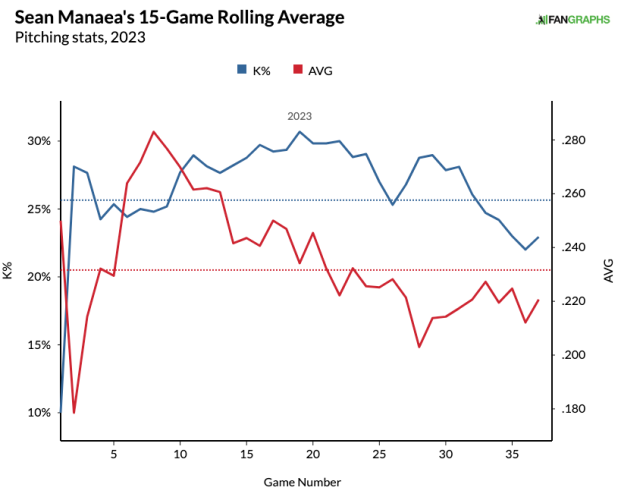
He made an adjustment later in the season to dump the sweeper and return back to his familiar approach of fastballs, changeups and traditional sliders, as the sweeper was essentially gone by September despite its effectiveness over the course of the season (.158 avg, 36 percent whiff rate):
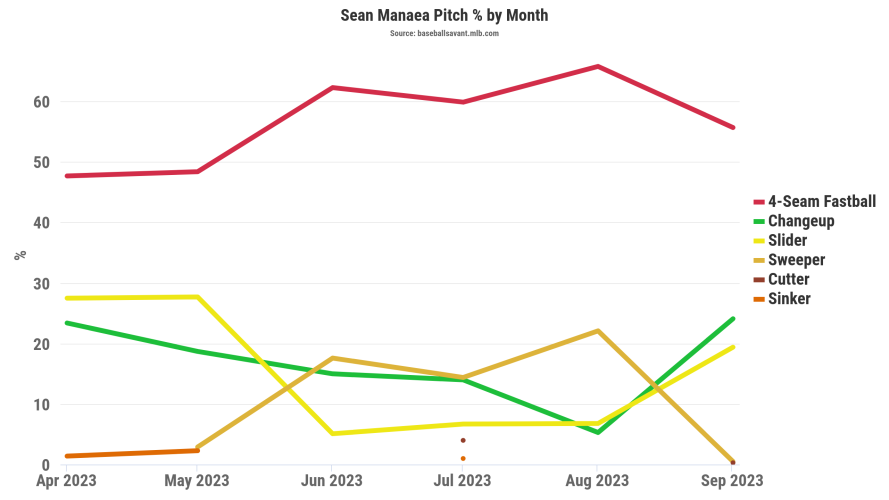
The velocity stuck around all season even as his role and his success wavered throughout the season. The move to the NL East allows for him to take his chances against two of the weaker lineups in baseball, while you'll likely opt to sit him each time Atlanta is on the schedule. I like how Manaea has simplified his portfolio and is respecting the Yu Darvish rule developed by Jeff Zimmerman:
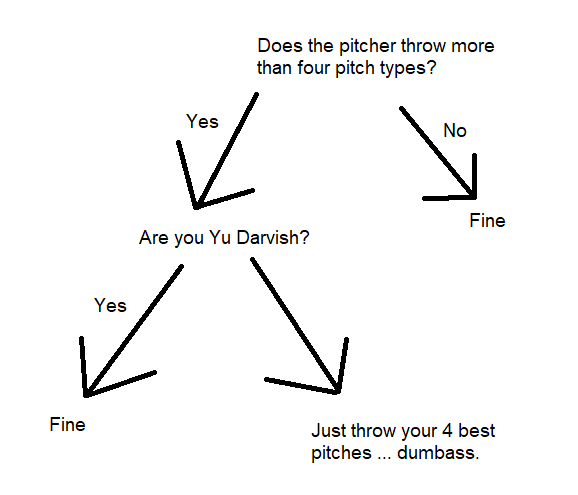
Philadelphia Phillies
Trea Turner wins the NL MVP and posts a 30-50 season (current ADP 12; min 4, max 15)
We all know the story of how the magic of advertising and fan support turned Turner's dismal season around in 2023. It wasn't surprising to see a player in the first year of a massive contract with a new team struggle in his first season, but even his worst detractors never predicted Turner would be hitting .235/.290/.368 into early August. He still had 60 runs and was a perfect 21-of-21 stealing bases, but the production was far from what Phillies fans and fantasy managers were expecting from Turner.
Turner turned his season around that weekend and went on a .337/.389/.668 tear with 16 homers, 42 RBIs, 42, runs and 9 more steals without being caught once through the end of the season. Turner isn't as bad as he was for the first two thirds of the season, nor is he as amazing as he was for the final third. Something in between those two bodies of work would give us the production we've seen from him in other seasons. He has both driven in and scored 100 runs in the same season and has swiped as many as 46 bases in his youth but has never gotten to that 30-30 plateau.
It will be a push for him to get to 30 homers looking at his recent batted ball trends, but he went 30-for-30 on the bases last season and would have easily had more steals had he been on base more frequently. Turner had 251 opportunities to steal a base last season but attempted just the 30 he ended up with by season's end. Some of his stolen base production was impacted by moving around the lineup, and some of it was no doubt impacted by Kyle Schwarber clogging up the bases in front of him. That latter situation may persist in 2024 unless Turner is promoted to the leadoff role to maximize his chances of wreaking havoc on the bases.
Simply put, I'm calling for Turner's best fantasy season yet.
Jeff Hoffman is a top-125 pitcher (current ADP 470; min 392, max 534)
Hoffman continues to get better as he gets further and further away from Coors Field. He made incremental improvements moving east from Denver to Cincinnati, but took a massive step forward last season out of the pen, recording a 24 percent K-BB% while holding opposing batters to a .155 average.
Hoffman is an unusual reliever who features his slider as his primary pitch while still being able to throw an upper 90s fastball and sling a splitter at opposing batters. He threw far more sliders last season, more than doubling the pitch's usage from 23.7 percent to 47.9 percent, and the league never caught up with him, as they hit .074 off the slider while swinging and missing 44.6 percent of the time at the offering.
I'll simply reiterate what I said about Hoffman in one of the pieces I wrote in late 2023:
Hoffman found a home in Philly last year toiling in later leverage situations. Hoffman's .247 xwOBA was the fifth-best in baseball last season behind only Felix Bautista, Tarik Skubal, Josh Hader, and Tanner Scott. Hoffman really leaned into his slider last year and the league couldn't do much with it, as its .074 average against and 44.6 percent whiff rate can attest. Jose Alvarado isn't exactly the model of health, as he twice went on the injured list in 2023 with forearm issues, and Hoffman has shown he has the stuff to step up big in late situations.
Hoffman should be prioritized by fantasy managers in the reserve rounds because he is very capable of stepping in for an injured or struggling Alvarado and never relinquishing that role. A final data point(s):
| PITCHER | STUFF+ | LOCATION+ | PITCHING+ |
|---|---|---|---|
Alvarado | 109 | 100 | 103 |
Hoffman | 128 | 96 | 103 |
Washington Nationals
Stone Garrett is a top-100 outfielder (current ADP 483; min 398, max 551)
Garrett had a productive 2023 season when he was on the field, finishing 15 percent better than league average at the plate. His season was cut short by a broken fibula as well as an ankle issue, and his rehab is going to slightly delay his start to the season. He has above-average tools in the power and speed department even if the rest of his game is rough around the edges. He was granted free agency as a minor leaguer both by the Marlins and the Diamondbacks before finding a home with the Nationals last season. He also appears to have a regular spot in the in the lineup for the rebuilding Nationals as they continue to develop their young talent while carrying Joey Meneses and now Joey Gallo for experience and power in the middle of the lineup.
The addition of Gallo knocks Garrett down a peg in the lineup for now assuming Gallo does better than he has since leaving Texas, but Garrett should still be in the lineup most days and should be given ample opportunity to see if he can produce over the course of a full season.
Garrett did more of his damage against lefties in 2023 with an .839 OPS against them, but his .758 OPS against righties shows that he isn't strictly platoon material. It was also impressive to see him improve as the season went on:
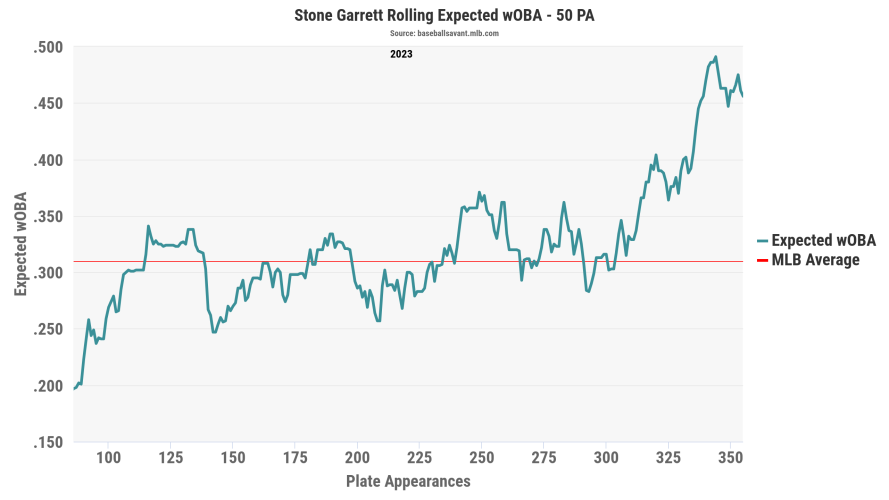
It will only cost a reserve pick in the draft to see if that late performance was a leading indicator and whether there is more to Garrett than meets the eye.
Thaddeus Ward is a top-250 pitcher (no ADP)
Earlier this series, I implored someone to draft Sem Robberse in the 50th round of a Draft Champions draft just so the player would have an ADP. In my best Bernie Sanders voice, I am once again asking you for your help and asking someone to draft Ward so he shows up on an ADP report.
Let's be real: this is a tough team to call a pitching breakout on. Kyle Finnegan and Hunter Harvey are draftable because of the closer role they will likely share, while MacKenzie Gore and Josiah Gray both have upside and risks. After that, you need to employ the scrolling wheel on your optical mouse to get to the next player, as there is a 266-point gap in the ADP from Josiah Gray (384) to Cade Cavalli (650).
I am going with Ward as he's now two-plus years fully recovered from the 2021 Tommy John surgery which ended his run as a top-10 prospect in the Boston organization. Ward eventually came over to the Nationals in the Rule 5 draft, so he was required to spend the season at the big-league level before a sore shoulder sent him back to the shelf for more than two months.
The overall 2023 numbers were absolutely nothing to write home about, but we are also talking about a pitcher who had never thrown a pitch above AA ball coming into 2023. Rule 5 pitchers rarely work out well, especially someone not even two seasons removed from major surgery. We did get to see him pitch at First Pitch Arizona and you can even see good friends Nick Pollack (yellow shirt) and Paul Sporer (teal hoodie) standing on the concourse in the background toward the middle of the embedded video clip below:
Ward will very likely open the season with Triple-A Rochester to get more reps as a starting pitcher, but expect to see him up in action with the Nationals this season. He could be an intriguing pitcher in deeper NL-only drafts and as a final-round selection in the draft-and-hold formats.







